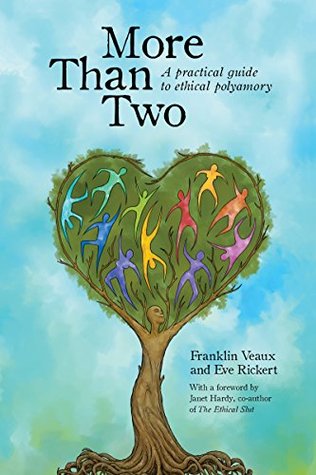More on this book
Community
Kindle Notes & Highlights
Read between
November 25 - December 12, 2017
It means having multiple loving, often committed, relationships at the same time by mutual agreement, with honesty and clarity.
it means commitment to a romantic relationship, with everything that goes along with that: commitment to being there when your partners need you, to investing in their happiness, to building a life with them, to creating happy and healthy relationships that meet everyone's needs, and to supporting one another when life gets hard.
Polyamorous relationships are relationships—with good times, bad times, problem-solving, communication…and,
Happy, healthy romantic lives require not just continual reinvestment but constant awareness of the changes in our partners, our situations and ourselves. Our partners do not owe us a guarantee that they will never change, nor do we owe anyone such a guarantee.
a healthy relationship must first of all be resilient, able to respond to the changes and complexity life brings.
happiness is something we re-create every day. And it comes more from our outlook than from the things around us.
it's still unreasonable to expect one person to be everything.
"Cheating" is violating trust by breaking the rules of a relationship.
Betrayal, not sex, is cheating's defining element.
the best measure of a relationship isn't how complicated it is, but rather how much joy, hope, delight, support and love it brings.
AFLE or AFOG: "another fucking learning experience" or "another fucking opportunity for growth."
One of the amazing things polyamory offers is the freedom to negotiate relationships that work for you and your partners.
Since polyamory invites us to build relationships tailored to the needs of everyone involved, it demands that we think carefully about our relationships and craft them accordingly.
the free-agent model places responsibility for decision-making, and for bearing the consequences, on each person individually.
Polyamory offers an opportunity for different relationships to provide for different needs. The danger here is seeing other people as need-fulfillment machines.
Ethics are crucial to polyamorous relationships,
Being ethical means that you're willing to look at your actions and their effects on other people.
also means that you're willing to have the kinds of discussions that would permit an honest analysis of the way you're choosing to do poly, without getting defensive or accusatory.
the compass directions we've seen that lead to strong, vibrant, happy relationships are courage, communication, willingness to accept responsibility for your own emotions, respect for the autonomy of others, compassion and empathy.
trust that you don't have to control your partner, because your partner, given the freedom to do anything, will want to cherish and support you.
relationships exist to serve the people in them.
Even though the people and the relationship need to serve each other, the people are always more important.
Consent is about you: your body, your mind and your choices.
Honesty is an indispensable part of consent.
Being able to share, to the best of your ability, who you are in a relationship is critical for that relationship to be consensual.
An omission is a lie when it is calculated to conceal information that, were it known to the other party, would be materially relevant to her.
empowered to make our own choices—to have agency—we
it's possible to be both a responsible parent and an ethical partner.


